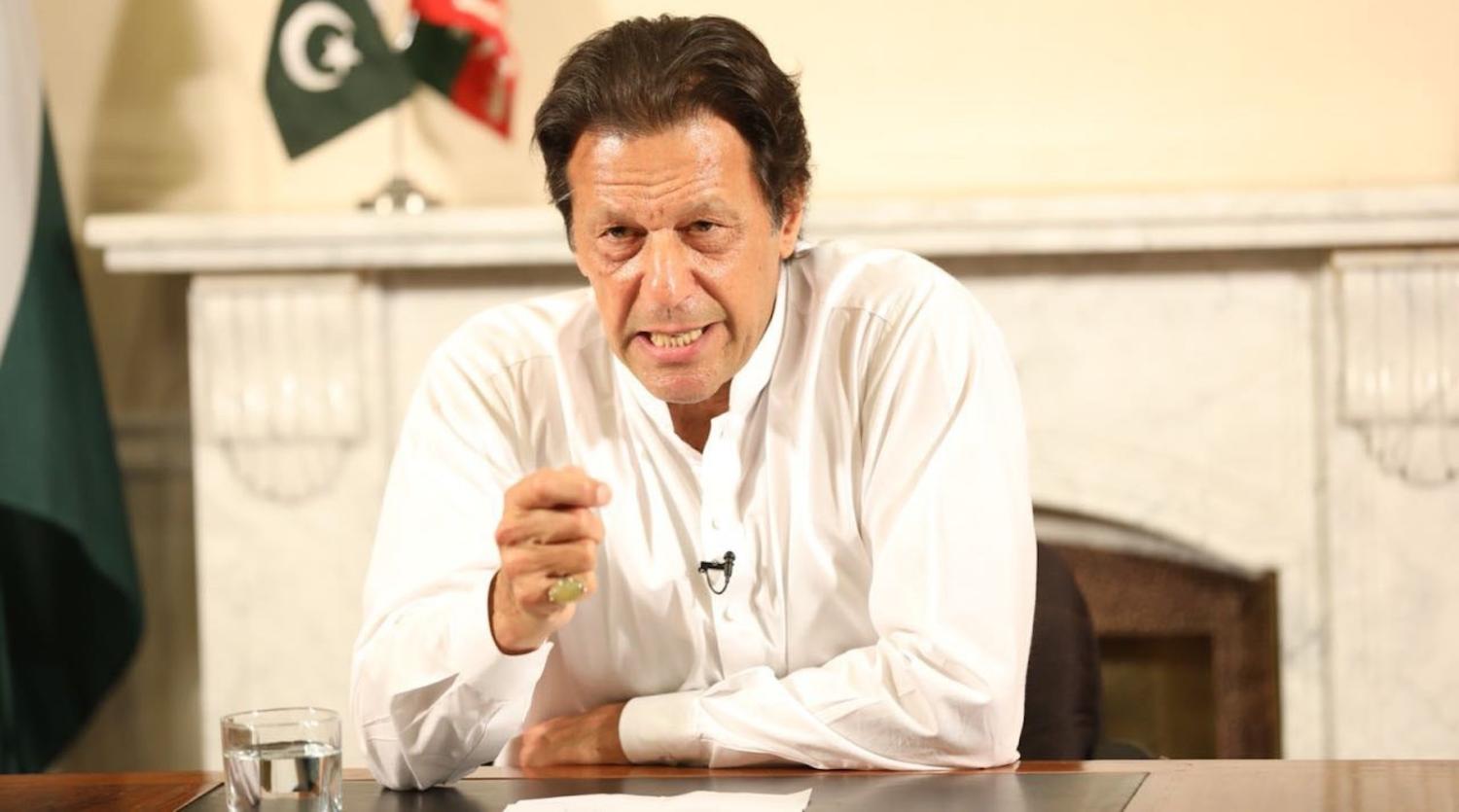Imran Khan’s impressive election victory in Pakistan marks the first time in country’s 70-year history that a relative outsider will govern on a democratic mandate. While he is dubbed the military’s and judiciary’s favourite candidate, Khan’s political struggle is enough reason to distinguish him from politicians who acted as military proxies in the past. Khan is the flamboyant, Western-educated cricket hero who won Pakistan’s only world cup in 1992, and is a favourite with young Pakistanis.
Imran Khan will be leading a state that is facing serious economic and foreign policy challenges.
Khan is an outsider in many ways. He does not belong to the powerful Sharif and Bhutto dynasties, and, despite strong allegations, he is independent from the Pakistani military that has undertaken three coups and governed the country for more than 30 years. In addition, unlike the other major political parties who depend on support from the populous provinces of Punjab and Sindh, Khan derives his support from Khyber Pakhtunkhwa and Balochistan, the two neglected and less populous states.
In his first address to the nation, Khan emphasised his naya, or new Pakistan strategy. His anti-corruption rhetoric promotes the establishment of an Islamic-style welfare state and advances a strong nationalistic agenda that appeals to the military as well as younger generation of educated Pakistanis. On foreign policy – an area in which he might not have much leverage, given the military tends to control international affairs regardless of who is in power – Khan promised to further strengthen relations with China, and wants a mutually beneficial relationship with the US.
The formal election results are on hold for now, as major political parties except Khan’s Pakistan Tehreek-e-Insaf (PTI) have rejected the results and alleged widespread fraud and rigging. Some prominent politicians in Pakistan have termed the elections the dirtiest in the country’s history. Pakistan Muslim League (PML-N) leader Shahbaz Sharif, the brother of three-time Prime Minister Nawaz Sharif, and the Pakistan People’s Party both complained that their representatives were held back from monitoring vote counting by security forces.
Khan will need support from minor parties or independents to form a government, but the preliminary results show his party has won the most seats. These results also show that a large number of independent candidates have been elected, giving Khan options to choose partners in forming government. An important aspect of the early results is that many prominent political figures, including former prime minister Shahid Khaqan Abassi, have failed to retain their seats.
In the lead-up to the election, media and experts both inside Pakistan and elsewhere labelled Khan as the military’s candidate, for whom the playing field was cleared by Pakistan’s powerful judiciary. For more than a year, the Pakistani judiciary and military conspired to weaken PML-N. Using the Panama Papers revelations, Sharif – Khan’s most popular and viable foe – was first disqualified from holding office as prime minister and then sent to prison, clearing the way for Khan. This was Sharif’s third time in the top job, which he once again left incomplete.
In addition, most of the candidates on PTI tickets are former members of the two largest parties, PML-N and PPP – also called the civilian establishment in Pakistan. Most of these candidates who carry banks of constituency votes joined PTI, but there are suggestions many of them were coerced by security and intelligence forces. Many of the candidates from the two major parties also chose to contest elections as independents, in a bid to avoid unwanted confrontation with security agencies.
During the election, campaign suicide attacks killed two candidates and dozens of their supporters. Given such threats, more than 300,000 military personnel were deployed to secure polling stations across the country. Many candidates, including those who won election, suggested that soldiers took full liberty in interfering in the voting process under the precepts of security.
Pakistan’s oldest news outlet, the Dawn, warned that the military was trying to limit the circulation of pro PML-N news outlets across Pakistan. For years in Pakistan, intelligence agencies have identified individual journalists as threats to national security, and some of them have been kidnaped, assaulted, and murdered.
Khan will be leading a state that is facing serious economic and foreign policy challenges. Pakistan is in danger of bankruptcy as the country’s foreign reserves dwindle to $9.8 billion, and its currency exchange rate is at an all-time low. The severity of the crisis lies in the fact the country will need to make inroads on foreign policy issues to be able to seek support from international institutions such as the International Monetary Fund (IMF). Pakistan might ask its closest ally China to once again provide lending as a last resort, but there are signs China wants this to be IMF’s job.
The US–Pakistan relationship, which has historically been a tit-for-tat deal, has deteriorated in recent times as the US cut its aid to the country in January and managed in June to put Pakistan on the “Grey List” of Financial Action Task Force – a global anti–money laundering body. Given Pakistan’s financial situation, the country needs US aid dollars and access to global financial institutions loan programs on which the US will have the last say.
Pakistan will also need to deal with radical Islamist groups, such as Islamic State Khorasan Province (ISKP), who took responsibility for attacks on military and election rallies during the past few weeks. While Pakistan has succeeded in containing these groups and reducing their capability to undertake violent attacks, they still pose a great security threat. Many of these groups no longer obey orders from the Pakistani intelligence, after Pakistan used radical Jihadi groups in a proxy war against India.

